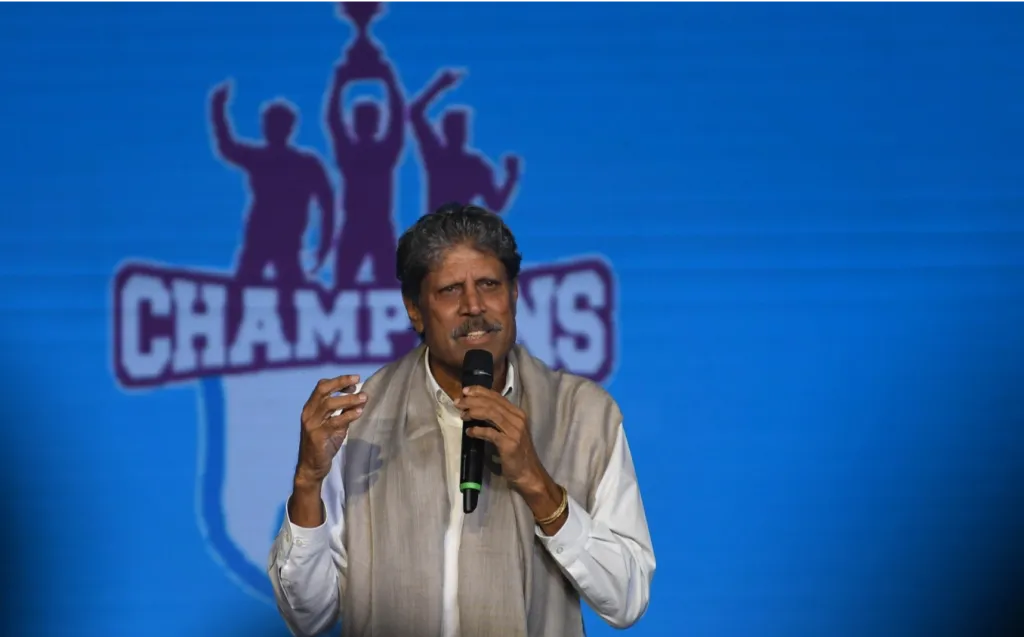In the realm of cricket, comparisons across generations often elicit strong opinions, as legendary cricketer Kapil Dev highlighted earlier this week during an event organized by the Professional Golf Tour of India. Kapil, an iconic figure in Indian cricket, expressed that such comparisons are unnecessary and largely unproductive. His views reflect the distinct contexts in which each generation of players competes, as he pointed out the substantial differences in match dynamics and player performances over the decades.
Kapil Dev, renowned for his all-round capabilities, demonstrated his prowess in the 1991-92 Test series against Australia. During this challenging series, he bowled nearly 300 overs, showcasing not only endurance but also skill. This remarkable achievement led him to become the first Indian bowler to claim 400 wickets in Test matches, marking a significant milestone in Indian cricket history. His contributions with the bat further solidified his effectiveness as a dedicated athlete, playing a crucial role in the team's performance.
The modern game, exemplified by players like Jasprit Bumrah, presents a contrasting landscape. Bumrah's experience in the recent five-match Border-Gavaskar Test series was a testament to this evolution. Though limited by back spasms in the second innings of the final Test, Bumrah managed to bowl more than 150 overs throughout the series, emerging as the highest wicket-taker with 32 scalps. This statistic underscores the contemporary player's capacity to excel in a physically demanding environment, further emphasizing Kapil’s point that the dynamics of the game have transformed significantly.
Kapil's reflection on the current trend of players achieving new feats is telling. He noted that scores of 300 runs in a single day had become commonplace, a stark contrast to earlier periods in cricket, where maintaining such a run rate was rare. This observation reinforces the notion that player capabilities and game strategies have evolved, making direct comparisons less meaningful.
Another topic of discussion during the event was the omission of Yashasvi Jaiswal and Rishabh Pant from the upcoming England T20I series. Both players participated in all five Tests of the demanding series against Australia, with Jaiswal being the second-highest run-scorer after Travis Head. Kapil maintained that it would be inappropriate for him to criticize the selectors regarding these decisions. He suggested that the selectors operate with a comprehensive understanding of the team's needs and player form, and any personal commentary could be construed as undermining their authority and judgment.
As speculation regarding the future of senior players like Rohit Sharma and Virat Kohli widens, particularly following their subpar performances during the Australia series, Kapil urged respect for their expertise in making individual choices regarding retirement. He characterized these players as significant figures in cricket, expressing confidence that they would recognize the appropriate time to step back from the game. The sentiment reflects an understanding that great players ultimately determine their paths based on their performance and personal perspectives on their careers.
Furthermore, with Bumrah stepping into the role of captain during the final BGT Test, a dialogue has emerged regarding the feasibility of a long-term leadership position for him. Kapil’s response emphasized the need for patience in giving Bumrah the time to develop in this critical role. He advocated for allowing the newly appointed captain the opportunity to prove his mettle and grow into the position.
In summary, the discourse initiated by Kapil Dev elucidates the complexities and intricacies of modern cricket. His insights highlight the differences across eras and advocate for patience and respect in evaluating players, selectors, and the evolving nature of the game. With cricket continuously adapting to new challenges and standards, acknowledging these changes is pivotal for both enthusiasts and analysts as they reflect upon the sport's rich history and future trajectory.

